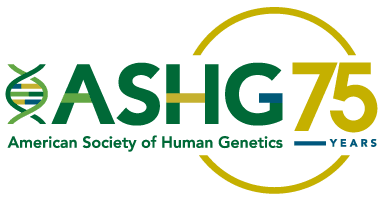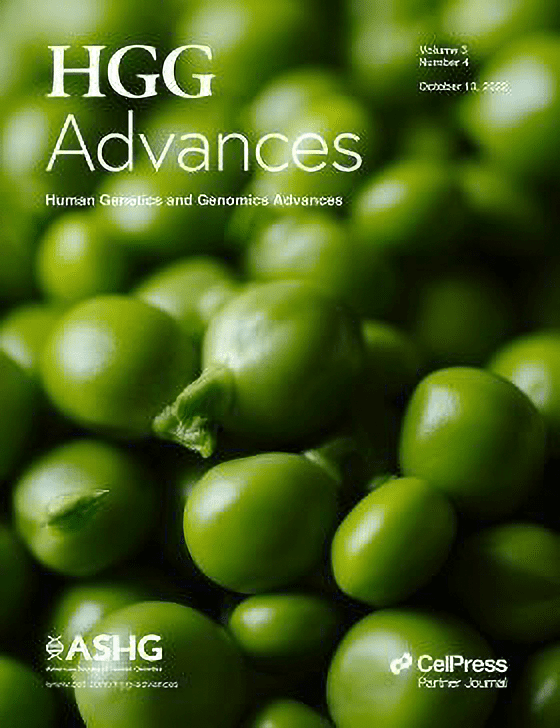The ASHG Board of Directors met on October 24-25 for its annual Fall meeting, reviewing select programs and accomplishments, engaging in informal discussion, and considering areas for future strategic focus. It also welcomed as guests incoming Board members whose terms begin January 1, 2023. The following overview highlights key discussions.
ASHG’s 75th Anniversary
 The Board reviewed plans for honoring ASHG’s 75th anniversary in 2023 with a yearlong celebration of scientific progress and the Society’s evolution. It is an opportunity to honor achievements, communicate and celebrate major scientific progress and milestones, reflect on those facets of the Society’s history being discussed through the Society’s Facing our History – Building an Equitable Future Initiative (see next section), and look ahead to the next 25 years of progress in human genetics with excitement. The ASHG Public Education and Awareness Committee’s Discover Genetics Working Group, chaired by Kenneth Ramos, MD, PhD, will guide public communication, leveraging the ASHG DNA Day Essay Contest and visibility during the 2023 annual meeting in Washington, DC. Other volunteers will also provide guidance, with the AJHG Editorial Board contributing to the selection of high-profile achievements over the past decades and early career scientists figuring prominently in exciting future possibilities – all in service to ASHG’s vision that “people everywhere realize the benefits of human genetics and genomics research.” The DC annual meeting location will also create opportunities to engage with policy leaders and patient advocacy groups. Updates will be shared during the April Spring Board meeting.
The Board reviewed plans for honoring ASHG’s 75th anniversary in 2023 with a yearlong celebration of scientific progress and the Society’s evolution. It is an opportunity to honor achievements, communicate and celebrate major scientific progress and milestones, reflect on those facets of the Society’s history being discussed through the Society’s Facing our History – Building an Equitable Future Initiative (see next section), and look ahead to the next 25 years of progress in human genetics with excitement. The ASHG Public Education and Awareness Committee’s Discover Genetics Working Group, chaired by Kenneth Ramos, MD, PhD, will guide public communication, leveraging the ASHG DNA Day Essay Contest and visibility during the 2023 annual meeting in Washington, DC. Other volunteers will also provide guidance, with the AJHG Editorial Board contributing to the selection of high-profile achievements over the past decades and early career scientists figuring prominently in exciting future possibilities – all in service to ASHG’s vision that “people everywhere realize the benefits of human genetics and genomics research.” The DC annual meeting location will also create opportunities to engage with policy leaders and patient advocacy groups. Updates will be shared during the April Spring Board meeting.
Facing Our History/Building an Equitable Future Initiative
The Board discussed next steps of the Facing Our History – Building an Equitable Future Initiative, which launched in December 2021. The year-long initiative seeks to reflect earnestly on ways that the human genetics field, and ASHG specifically, has contributed to, or failed to address, misuses of human genetics to foster racism and other harms and injustices. It also focuses on steps the field and organization have taken toward justice. It has been guided by an Expert Panel of human geneticists, historians, clinician-scientists, social scientists, and equity scholars. The Board discussed the initiative’s approaching completion, and the timing and goals of the intended report release in early 2023. The Board also indicated that the Society would use the findings as input to its ongoing focus on ASHG’s sustained commitment to diversity, equity, and inclusion in research. The Board also determined that ASHG may communicate initial actions along with the report release while it will more deeply discuss and evaluate opportunities for action through the strategic planning process that will take place during 2023 (see upcoming section).
ASHG Awards Program
The Board discussed opportunities, policies and processes for the Awards program and a proposal to rename ASHG’s Early Career Award. While highly appreciating the recommendation for renaming, the Board deferred a decision until it had a larger discussion of award names. The context of the history initiative and the 75th anniversary next year creates an important opportunity to reconsider whether and how ASHG will make award naming determinations moving forward and the Board anticipates discussing and making those decisions in coming months.
Meeting with NHGRI Director Eric Green
Prior to the start of the meeting’s second day, the Board welcomed NHGRI Director Eric Green and his staff for an informal morning breakfast conversation. The group discussed areas of shared interest including workforce diversity, efforts to protect data privacy and enable data sharing, policy outlooks for the biomedical enterprise, early steps at Advanced Research Projects Agency for Health (ARPA-H), and other brief updates at the agency, as well as other key items of importance for the field.
Publishing Leadership
 Michael Bamshad, MD, editor-in chief of HGG Advances, joined the Board meeting as a guest to discuss the journal’s data on submissions, transfers, review time, and article citations. He indicated that the journal is on a positive trajectory with submissions and publications and that associate editors and staff were investing time in collaborating with authors to make improvements in manuscripts. Bruce Korf, MD, PhD, editor-in-chief of AJHG, presented recent journal data on submissions, transfers, and review time. He reported that the impact factor of the journal was the highest it had been within 5 years and stated that AJHG author feedback is overall positive. Finally, he mentioned that the journal has worked to evolve its content over the past five years, diversifying its large share of Mendelian papers.
Michael Bamshad, MD, editor-in chief of HGG Advances, joined the Board meeting as a guest to discuss the journal’s data on submissions, transfers, review time, and article citations. He indicated that the journal is on a positive trajectory with submissions and publications and that associate editors and staff were investing time in collaborating with authors to make improvements in manuscripts. Bruce Korf, MD, PhD, editor-in-chief of AJHG, presented recent journal data on submissions, transfers, and review time. He reported that the impact factor of the journal was the highest it had been within 5 years and stated that AJHG author feedback is overall positive. Finally, he mentioned that the journal has worked to evolve its content over the past five years, diversifying its large share of Mendelian papers.
The Board also discussed the recent announcement from the White House Office of Science Technology and Policy regarding immediate public access to journal articles funded by federal agencies. While HGG Advances is already full open access, AJHG publishes with a hybrid model that includes a short embargo period, so the Board approved an AJHG Publishing Working Group of Board members to focus on potential implications for AJHG’s publishing goals, financial revenue that supports non-revenue generating activity such as advocacy and policy, and equity considerations. The Working Group will report back to the Board in April. Both HGG Advances and AJHG are also planning activities for ASHG’s 75th Anniversary and the Board looks forward to a memorable celebration of the journal’s prior and future success.
Financial Update and Strategic Investments
The Board discussed the Society’s solid financial position despite swings in revenue and expense caused by the COVID-19 pandemic, inflation, uncertainty around publishing policies, and other larger societal factors. Treasurer Susan Slaugenhaupt, PhD, reported that FY22 ended better than budgeted and early FY23 outlooks remain consistent with budget thanks to a strong annual meeting and membership numbers. Through careful planning, attentive management, and collective stewardship by volunteers and staff, Slaugenhaupt reported that over a pandemic-influenced four-year budget period, the Society will emerge with a roughly breakeven performance. Given this outcome and existing reserves, the Board is confident that ASHG remains healthy and able to invest in quality programming for members and on public priorities, ensuring that ASHG continues to create and effectively communicate the unique value of membership. The Board also discussed that it must also be mindful to assess potential long-term changes to core revenue streams. As information emerges over coming months and years, the Society is positioned to consider how best to strategically deploy resources for the future. In regards to meetings in the coming years, the Board was presented with information about future locations and is considering these options.
Building on Strong Foundations
Given significant progress on its existing strategic plan, these singular moments in ASHG’s history, potential new emerging priorities, and foreseeable challenges, the Board is launching a renewed planning discussion over the next year to consider priorities, capacities, goals, and objectives for the next 3-5 years. During the Fall meeting, the Board previewed that discussion, and possible areas for greater investment, while recognizing that other priorities may need to be calibrated, deferred, or staged based on ASHG’s resources and capacity. The Board will meet in February 2023 at its Rockville headquarters for a two-day retreat to begin this planning process Following February’s discussion, the Board will meet again for its regular Spring Board meeting April 21-22 in Rockville, MD, to review the annual budget, evaluate potential new areas of investment to diversify revenue, engage with NIH leaders on research funding and policy priorities, and continue ongoing conversations about organizational strategic priorities.
